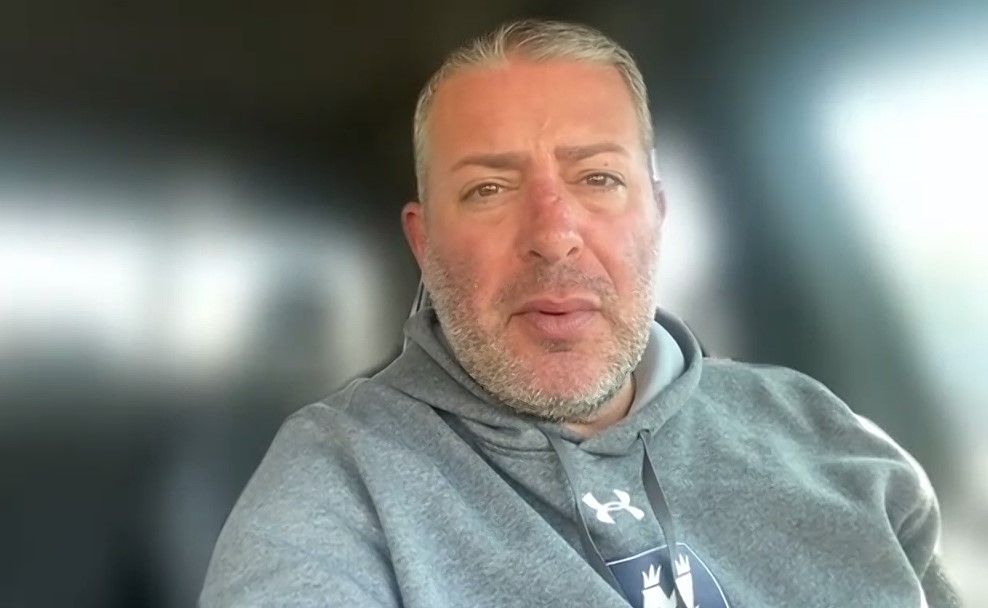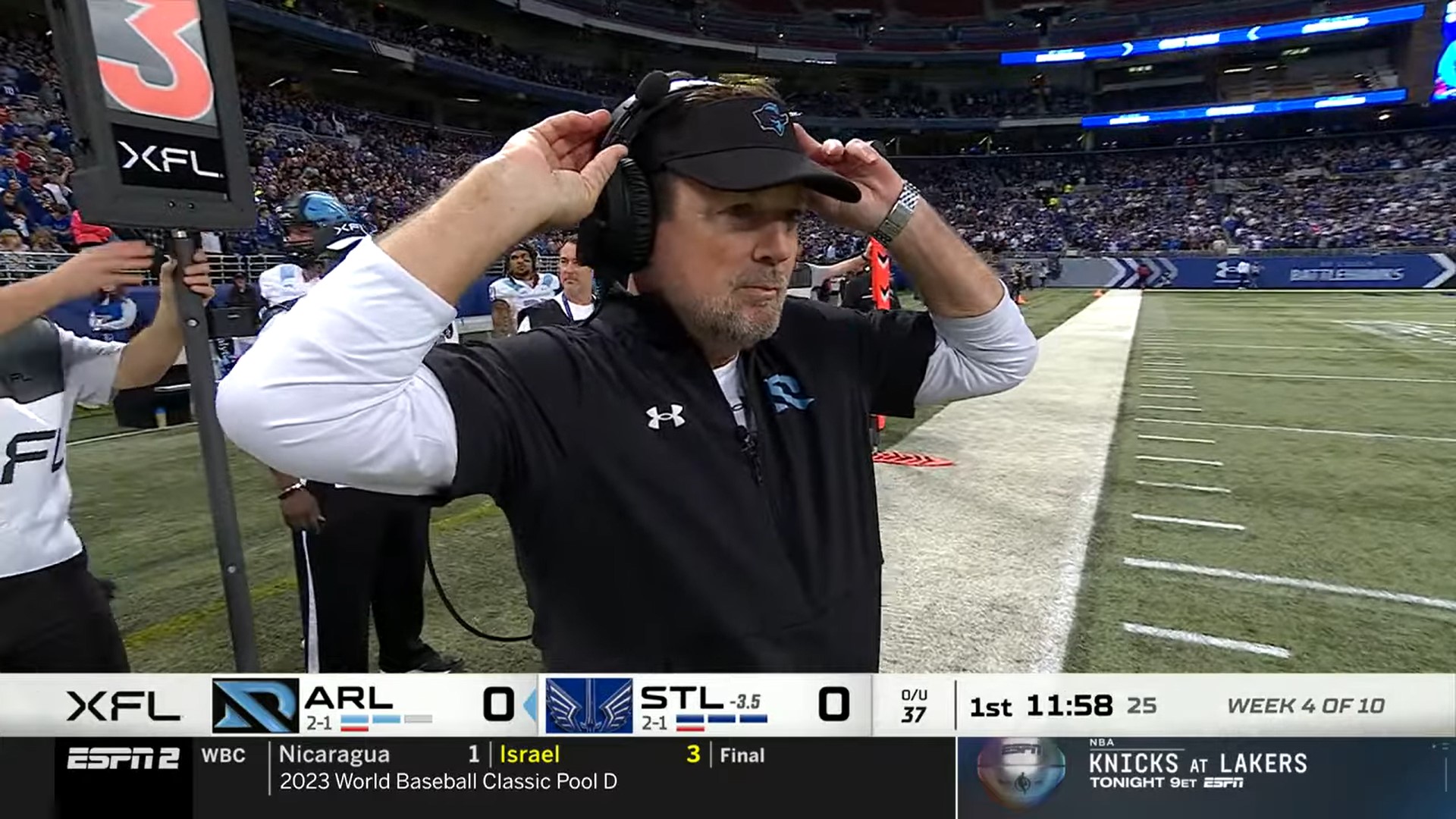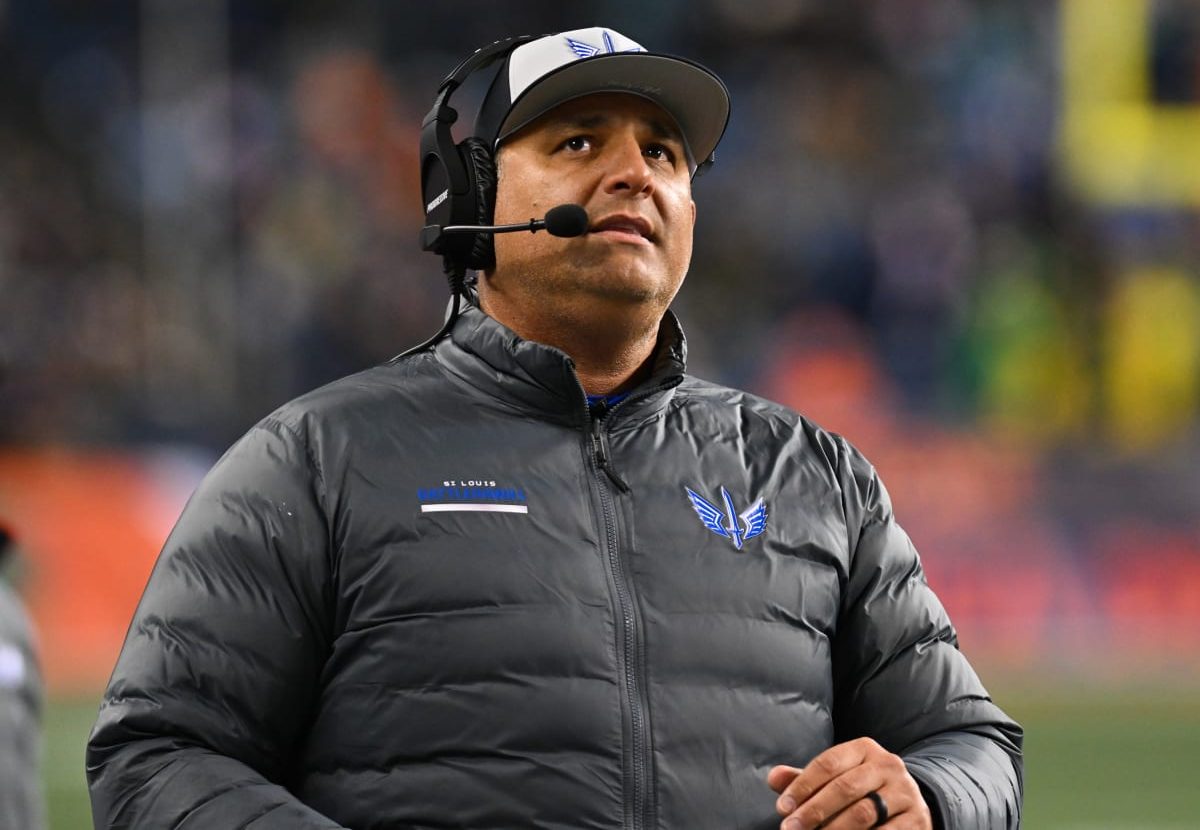
James Larsen of Pro Football Newsroom recently posted an article arguing that UFL leadership should hire a young, up-and-coming coach to head the Memphis Showboats franchise to replace the departed John DeFilippo, who previously announced he would not return in 2025.
This is an interesting topic as it will be the first time the new UFL ownership group will have to fill a head coach (and general manager, for that matter) position. The USFL and XFL seemed to have opposing philosophies when populating the head jobs within their respective leagues: The USFL seemed to favor experienced hires, while the XFL took a chance on several novices.
Now that the two have combined operations, which ideology will win out? There are advantages and disadvantages to both tacts. Here, I’ll break down what the league’s thought process could be in considering both avenues to find the right head coach for the Showboats.
Youth is served
Within this section, there are actually two subsets: The active, up-and-coming coaches who haven’t been head coaches before at the pro or college level; and those who have dabbled in coaching but are not currently employed anywhere. An example of the former would be Anthony Blevins, lured by the XFL out of an assistant special teams coordinator job in the NFL with the New York Giants. And the latter would be the XFL’s acquisition of Anthony Becht, Hines Ward, Rod Woodson and Terrell Buckley for the 2023 season.
To borrow one of Larsen’s arguments: If the UFL is going to be the league of opportunity for players, that opportunity should also extend to its coaches. Younger coaches, especially those short on experience, will likely come cheaper than their more aged counterparts, and price will absolutely be taken into account as the league continues to forge a path toward financial solvency.
Some position coaches have toiled at that level for years. They may not see a path to a coordinator job, which is a step away from getting head coach interviews and potentially a job to lead a team. They could opt to take the non-traditional UFL route to prove themselves and use it as a stepping stone. For those out of the game, it’s a way for them to get their foot back in the coaching door. There are worse jobs out there than being head coach in a spring league.
If the UFL is looking for long-term solutions at the position, this would be the path they may decide to forge. The grind of coaching in the NFL and college has become year-round, offering little respite for those striving for a healthy work-life balance. Knowing you only have to devote six months to this job – making high five-or-six figures in the process – could be an alluring selling point for those burned out on the coaching carousel.
It’s not a slam dunk that coaches on their way up the ladder would choose to accept a job leading a UFL team. The downsides are significant. The biggest impediment is the lack of evidence that taking such a job can actually be used to secure one at a higher level. Granted, the start-and-stop nature of recent spring football leagues has played a part; it’s fair to say the jury is still out on this one due to insufficient data.
Arguably the most successful coach from spring football since 2019 in finding gainful employment elsewhere has been Pep Hamilton, head coach of the DC Defenders in 2020. He went on to become offensive coordinator for the Houston Texans. That gig lasted just one season and Hamilton now finds himself out of coaching altogether, working at NFL Network.
It would be a difficult sell-job to get an aspiring head coach to leave their current job to come to the UFL. There is a certain tried-and-true process to rise up the ranks in coaching, and leaving the NCAA or NFL ecosystem for a detour into spring football is not part of that process. It’s tough enough to get a job at those levels; voluntarily removing yourself could lead to an “out of sight, out of mind” view for NFL and college teams looking to hire during the next coaching cycle.
Another negative is the timeline. UFL coaches are under contract from January to June, encompassing the prime hiring seasons in the NFL and college. Would the UFL let a coach out of their contract late in the off-season for a job elsewhere? Could an NFL or college team even negotiate with them, or would that be considered tampering? The UFL schedule and its effect on players signing into the NFL has been thoroughly debated; that debate should include coaches, too.

Old dogs, new tricks
The most compelling stat to bring in a veteran to lead Memphis is based on XFL 2023: They hired four first-time head coaches and as noted in the UFLBoard forums, with Anthony Becht being the outlier, the other three had a combined record of 6-24 (with four of those wins coming against each other). The class of the league were the teams that had experienced leaders. These coaches had a track record of success elsewhere; with younger coaches it was, and always will be, more of a crapshoot.
Part of what did in the Buckleys and Woodsons of the world was their in-game management. The unique UFL rules can even that playing field somewhat but there’s really no substitute for experience in that area, and it can be the difference between winning and losing a game.
For a team like Memphis specifically, a name-brand coach could lead to some needed buzz in the city. Not only were they disappointing on the field, finishing with a 2-8 record, but they struggled to attract fans to Simmons Bank Liberty Stadium. Hiring a coach with a recognizable brand would help the legitimacy of the league as a whole, one that is still trying to find its footing in a crowded sports marketplace, while also tickling the buying bone of Memphians who may be on the fence about supporting the franchise.
If the UFL wants to be a place where players develop their skills to be more attractive to NFL teams, then you need coaches that have a track record of actually developing players. Those that have been head coaches have also likely been position coaches and coordinators at very high levels of the sport. That background will not be lost on players and agents in considering whether to play in the UFL or for which teams.
A seasoned head coach can attract not only quality players, but quality assistants. More years, more stops, more teams worked for equals a more expansive Rolodex of potential assistants. These assistants likely share the same desirable assets as the head coach, namely a history of successfully developing players.
The USFL went through the downside of this approach, specifically, the fact that some “name” head coaches saw this as a vacation and invested little time and effort into their post. Bob Stoops often speaks of this job as a way to keep him busy, still stay in coaching, yet not worry about the negatives and red tape of college football. Not every coach with his resume would share his vim and vigor.

Final thoughts
There’s no right way to go about hiring the Memphis head coach, no sure-fire guarantee of success. There are approaches UFL management can take to mitigate the potential of a hire that doesn’t work out. It all comes down to what the UFL philosophy will be in hiring head coaches: Will it be finding a brand-name former player, short on experience, to give them a chance as the XFL did, living up to their “league of opportunity” moniker? Or will it take a more cautious approach, hiring someone that has been through the head coach wringer and is attracted to the UFL’s part-time schedule?
In reality, the league should hire the best person for the job, regardless of what side of the debate they may come from. Whatever the decision, the league better make it soon: Memphis needs both a head coach and a general manager. The team that requires arguably the most work to improve their roster is already falling behind other teams, who have been, for weeks now, signing new players for 2025.













